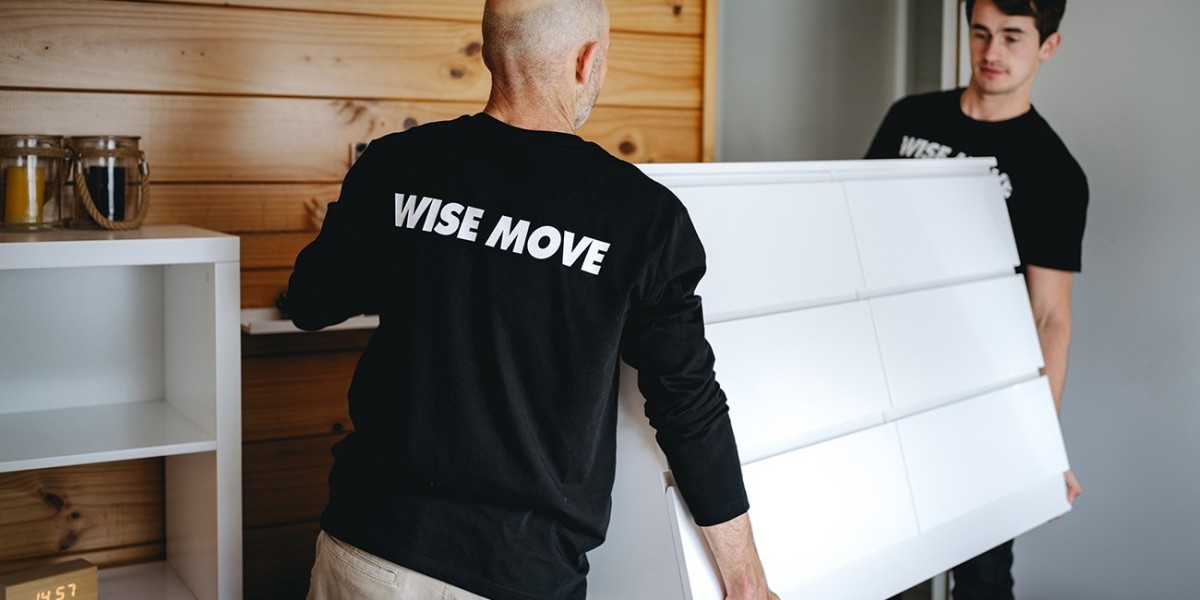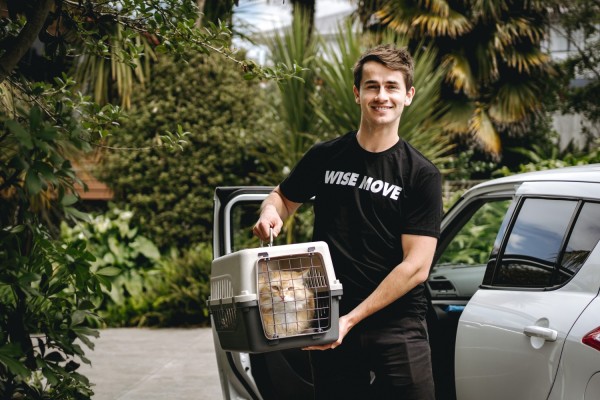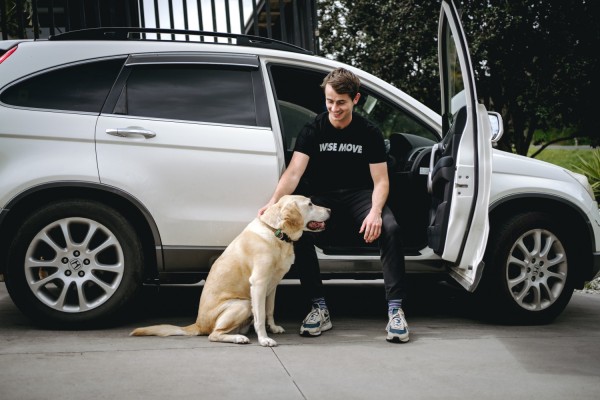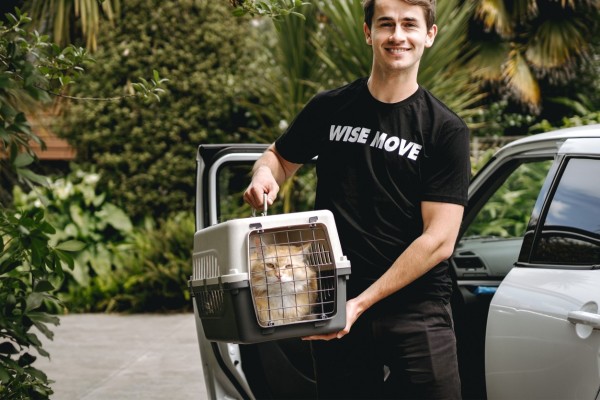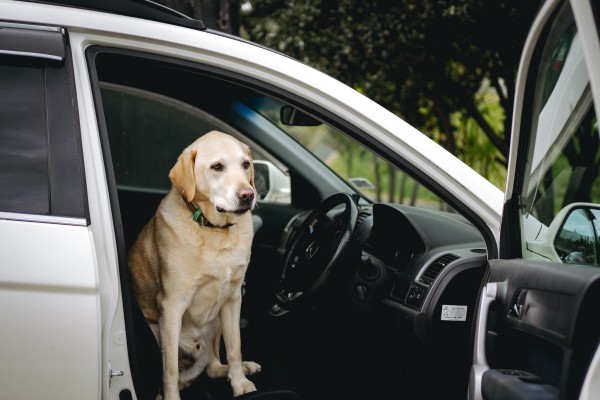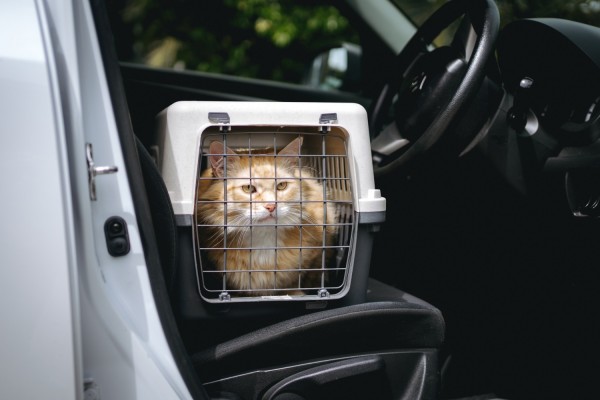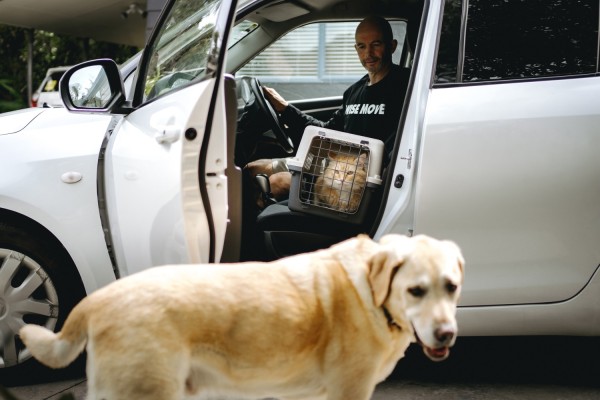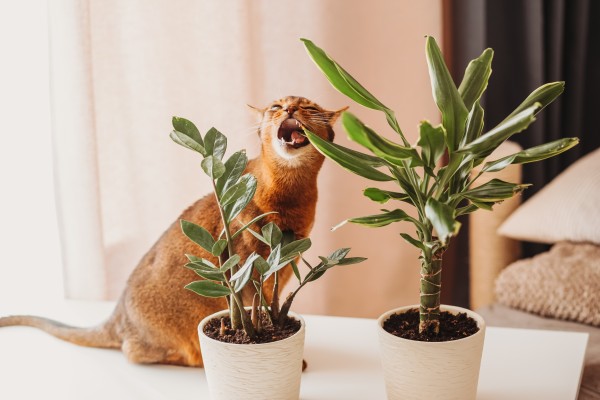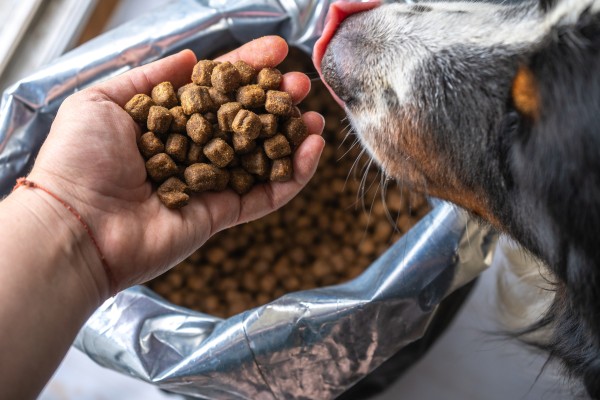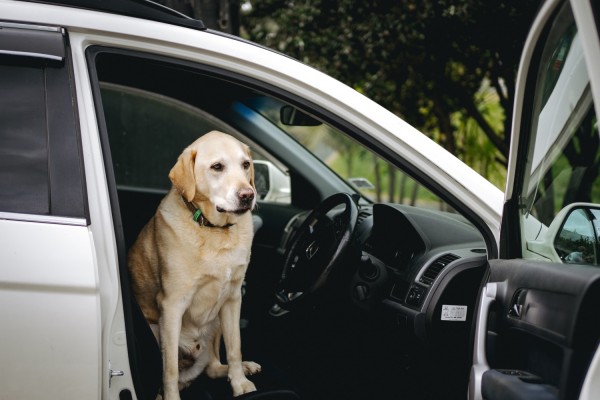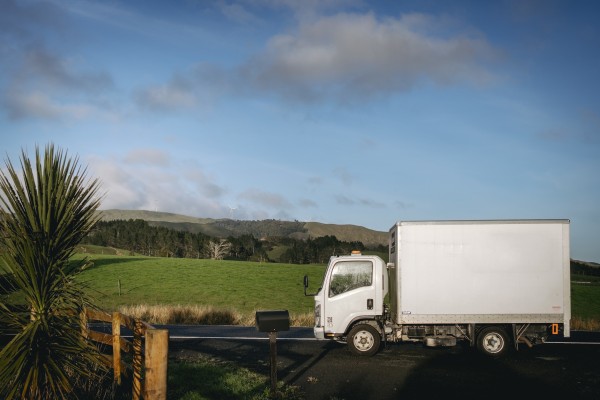Moving Home with an Anxious Cat with Cystitis
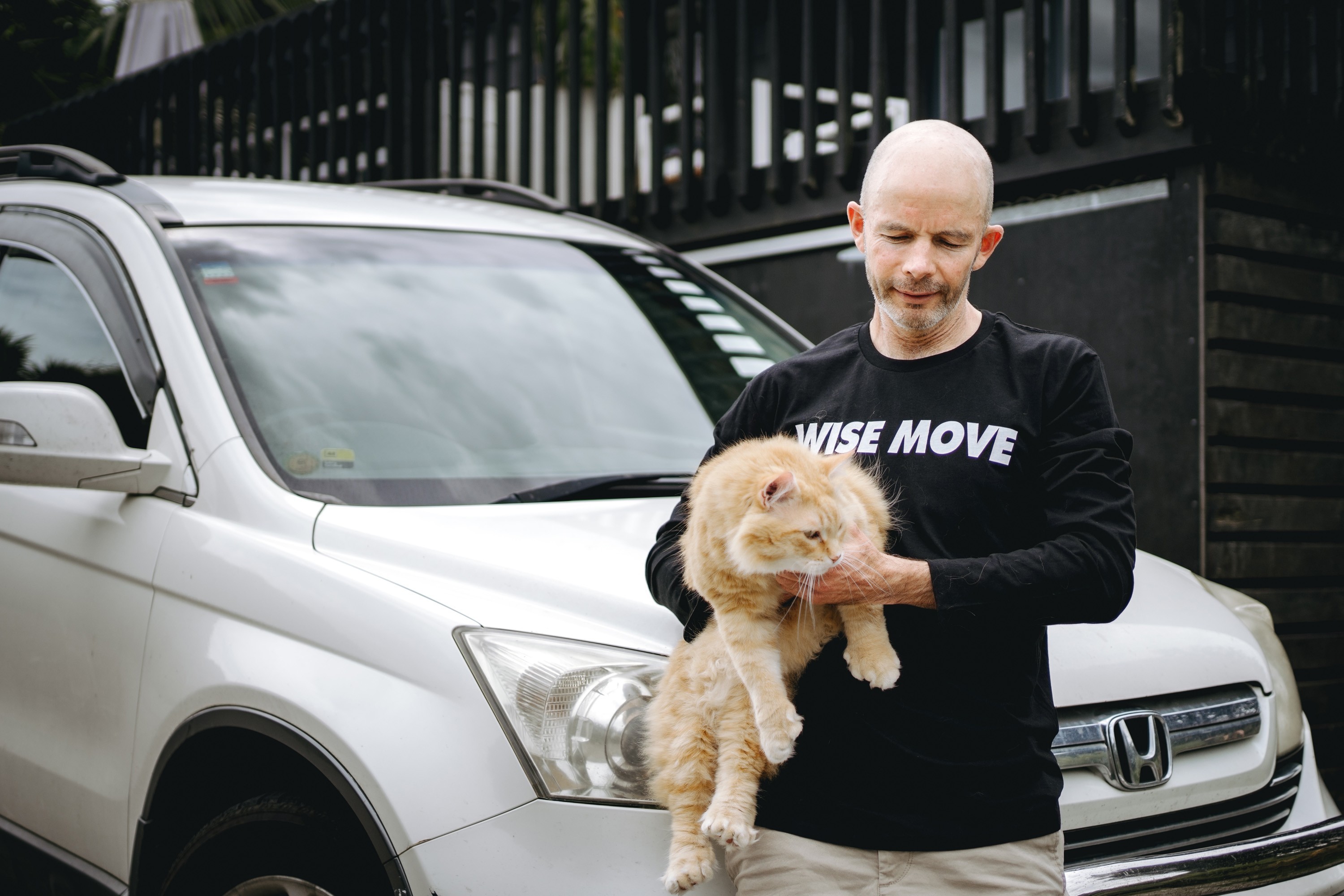
Cystitis is the inflammation in the lining of the bladder, causing blood and pain during urination. It is a common repercussion to anxiety. Cat guardians that have a cat with cystitis or anxiety need to take extra precautions to get their cat prepared and acclimated to the move. Our main goal is to decrease as much stress as possible and maintain the health of our feline friend.
It is not just the day of the move that causes stress. Cats can feel our anxiety, notice furniture being moved, notice packing, etc. It is best to assess your cat before starting any of the process.
It's always recommended to plan a move at least one month before packing.
Talk with a veterinarian
First, talk with your veterinarian about how to help your cat. Ask about possible prescription food, sedatives, or anti-anxiety medications that may be needed. If there is a history of medical issues, your veterinarian may want to prescribe other medications as well.
It can take up to several weeks for the medications to take effect and prevent or decrease anxiety.
Prescription foods are available to decrease stress. They have extra protein that helps felines to relax (i.e. tryptophan in turkey). Prescription foods are also available to prevent and/or treat crystals if your cat has a history of crystalluria.
Some research has shown that feeding wet food instead of dry food helps with health of urinary bladder. Ask your veterinarian if it would be good to switch to wet food.
Over-the-counter supplements are available as well. Solliquin, a vitamin supplement, has been proven to help with anxiety in small animals. It's recommended to start it several weeks in advance.
Pheromone diffusers and sprays will be your and your cat’s best friend. Place pheromone diffusers according to size of your current home before starting the moving process. This will hopefully help your cat relax during the process.
Choose the suitable cat carrier(crate)
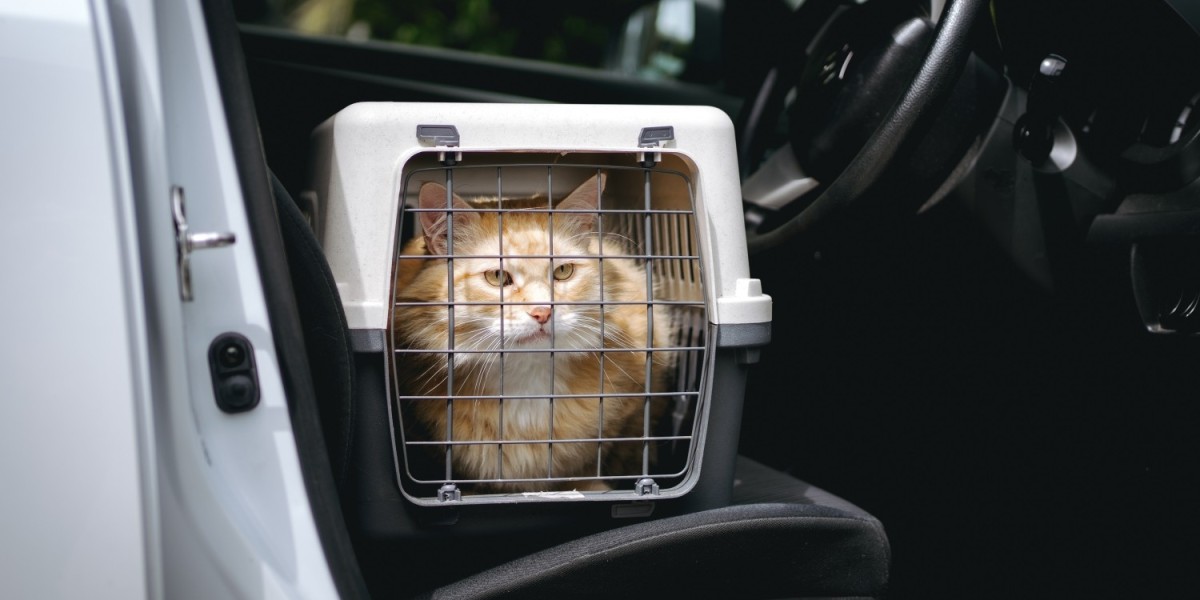
- The carrier is very important. You want a carrier that is large enough for the cat to stand and turn but small enough that it provides security.
- Cats that have cystitis need to stay hydrated. Increased hydration helps to dilute the urine and cause less irritation to the bladder. Purchase a carrier with easy access to water.
- The carrier will need to have pheromone spray inside and covered with a familiar blanket/towel with pheromone spray as well.
Place the carrier in your cat’s living area. Let them come to the carrier and investigate; do not force or attract attention to the carrier. Cats are curious creatures and will investigate when they are ready. You may need to reapply pheromones to the carrier/blanket daily. - Eventually, place one of their beds or blankets in the carrier. This will attract them more to the carrier. Once your cat has entered the carrier several times, close the door and let them sit for a few seconds/minutes and release rewarding with positive reinforcement. This can be treats or attention.
- Work up to carrying your feline inside a carrier through the house. If your cat is food motivated, you can start feeding your cat in the carrier. Do this hoping the cat will eventually see the carrier as a safe place.
- In some cases, the cat ignores the carrier completely. You will have to adjust the plan according to your feline. Entice with treats, food, toys, and attention. Feed near the carrier.
- If all else fails after a week, place the cat in the carrier gently. Reward your cat immediately after entering the carrier. If your cat is more aloof, you may want to just let them walk out slowly and not interfere. Sometimes we can be too helpful. Repeat daily if your cat is tolerating it well.
Hopefully, you will be able to feed or coax in with treats after a couple of times. If they become stressed, back off and start over. Again, we want your cat to enter the carrier by themselves, but it is better to have them aware of the carrier before the day of travel. Familiarity is your best ally.
Prepare your new home
You need to prepare your new home for your cat as well.
- If you have easy access to a new location, take some toys or blankets of your cat to a new location and bring them back for your cat to smell.
- Set up your new cat area before arriving—place pheromone diffusers in a home.
- Have current possessions moved to the location to help with acclimation.
- Do not perform deep cleanings on your cat's favourite furniture or rugs.
- Use the same litter pan, litter, food, toys, beds, etc. We want the new home to smell and feel like the current one to your feline friend.
Do trial runs in the car
- Give sedatives as directed by a veterinarian if needed, most are given within a couple of hours of travel.
- Place the cat gently in the carrier once the medication has taken effect.
- Place the carrier covered in a current blanket in the car and drive for only a few minutes and return back home.
This will allow you to see how your friend is going to respond to their medication and help them get used to the sounds and vibrations of car. Repeat few more times to help.
If your cat is not going to take sedatives, trial car rides are a necessity.
- Spray the car with pheromones and place a blanket, rug, or clothing inside car that smells like you or your cat.
- Place treats and water in carrier.
- Place carrier on top of the blanket. Continue to keep the carrier covered with the blanket that has been on the carrier in the house. Most cats find a small dark space safe.
- Drive only a few minutes and return home. Repeat every few days adding a little more time each trip. If your cat is curious, you can allow him or her to explore the vehicle if not in motion.
On the day of travel, treat cat and situation like a trial run so your cat is not stressed. Remember, they can feel your stress. Make sure that water is being supplied as needed to keep the urine dilute. Do not force your cat to drink but have it present for them.
Congratulations, you have made it to your new home! Your work is not done. Allow your cat to explore their new area freely and give positive reinforcement that your cat enjoys. Continue to provide pheromones, supplements, and prescribed medication for several months. Depending on your feline, it could take several months for them to acclimate. Monitor urination during this time for an increase in frequency, blood, decrease in amount or straining.
Call your veterinarian if you note any of these changes. Once your friend seems back to normal, slowly decrease supplements and pheromones only with your veterinarian’s approval.
Living with a cat with lower urinary tract disease is not easy. We are unsure what the true cause is, but we have been able to link it to stress. Hopefully, this information will help you and your cat make this transition as healthy as possible. Need help transporting your cat during your move? Book pet transportation with New Zealand's most trusted movers here.
What do our customers say?



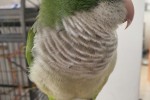
For every (wise)move

